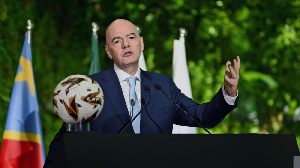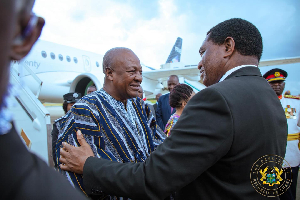Wamfie (B/A), Nov.06 GNA - Mr. Isaac Kofi Kyeremeh, District Chief Executive for Dormaa-East, has tasked the District Directorate of Education to institute rigorous supervisory measures to improve pupils' performance in the Basic Education Certificate Examination in the district.
He was addressing the final general meeting of the District's first ever district assembly at Wamfie, the district capital. Mr. Kyeremeh read a report he had received from the District Directorate of Education on the 2010 BECE results, which indicated that none of the 771 candidates for the examinations could score aggregate eight and that one of the schools - Kyeremasu District Assembly 'A' Junior High school (JGS) had only one girl passing the examination with aggregate 25.
He said though the over-all performance of the district's 23 JHS stood a little beyond 70 per cent, candidates' individual results were not good enough as the abysmal records could not earn them admission into any of the nation's well-endowed second cycle institutions. The DCE however acknowledged during the Assembly's debate on the report that the poor results could be attributed to several factors among them are gross indiscipline among pupils and indifference of some parents towards the basic needs of their children.
He said government would continue to honour its part of the obligation in basic schools and therefore expected other key stakeholders to do likewise to ensure congenial atmosphere for the complete training of the future leaders.
Mr. Kyeremeh announced that public basic schools in deprived communities in the district had so far benefited from a total of 2,934 free school uniforms and 40,796 exercise books as part of government's intervention to promote access to basic education.
He described challenges confronting the growth of education in the district as enormous and called for multi-disciplinary approach from all stakeholders - teachers, pupils, religious groups, traditional leaders and indeed civil society - to resolve them.
Regional News of Saturday, 6 November 2010
Source: GNA
Dormaa East DCE bemoans poor BECE results
Opinions











